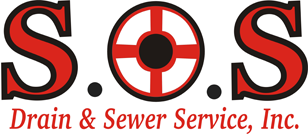A slow-draining sink can be more than just a minor annoyance—it disrupts your daily routine and hints at potential plumbing problems. Whether you’re dealing with water pooling in your bathroom sink or a sluggish kitchen drain, it’s crucial to address the issue quickly before it worsens. The causes can range from something as simple as a buildup of soap or grease to more complex issues like damaged pipes or blocked vents. But don’t worry!
This blog will guide you through the most common reasons behind slow-draining sinks, practical DIY fixes you can try, and smart steps to prevent future clogs. Let’s get your sink flowing smoothly again!
Why Keeping Your Sink in Good Shape Matters
A sink is an essential part of our daily lives, and it’s easy to take its proper functioning for granted. We use sinks for washing dishes, brushing teeth, cleaning hands, and so much more. A slow-draining sink can disrupt these basic tasks and add extra time to your already busy schedule. Overlooking the issue or delaying repairs can lead to bigger problems down the line, such as complete blockages or leaks that cause water damage.
Proper maintenance of your sink not only ensures convenience but also helps in preventing costly plumbing emergencies. It can also improve the lifespan of your pipes and plumbing fixtures, saving you money in the long run.
Why is Your Sink Draining Slowly And What Can You Do About it?
Now that we understand the importance of keeping our sinks in good shape, let’s dive into the common reasons behind slow-draining sinks and how to fix them.
1. Buildup of Debris
One of the most common causes of a slow-draining sink is a buildup of debris such as hair, soap scum, mineral deposits, and food particles. This accumulation can happen over time and gradually restrict water flow. You may notice this issue more in bathroom sinks, where hair and soap scum tend to accumulate quickly.
DIY Fix:
To unclog your sink from debris buildup, start by removing any visible blockages using a pair of gloves or tweezers. Next, pour boiling water down the drain to break up and loosen any remaining debris. Follow this with a mixture of equal parts baking soda and vinegar, which will create a foaming reaction that can help dislodge stubborn debris. Finally, flush the drain with hot water again to clear out any remaining residue.
Prevention Tips:
To prevent buildup in your sink, consider installing a mesh strainer or hair catcher over the drain to catch any debris before it goes down the pipes. Also, avoid pouring grease, oil, or coffee grounds down the drain as they can solidify and cause blockages.
2. Clogged P-Trap
The P-trap is a U-shaped pipe located beneath your sink that holds a small amount of water at all times. This water creates a seal that prevents sewer gases from entering your home. However, this trap can also catch debris, leading to clogs and slow-draining sinks.
DIY Fix:
To clear a clogged P-trap, place a bucket or container under the pipe to catch any excess water. Then, use pliers or a wrench to loosen the slip nuts on either side of the trap and remove the trap altogether. Clean out any debris and reattach the trap with the nuts tightened securely.
Prevention Tips:
Regularly cleaning out your P-trap can help prevent clogs and keep your sink draining smoothly. You can also consider installing an enzyme drain cleaner, which can break down organic material in your pipes and prevent buildup.
3. Blocked Vents
Every plumbing system has vents that allow air to enter and equalize pressure, helping wastewater flow smoothly. If these vents become blocked by debris or animal nests, it can create a vacuum effect that slows down drainage.
DIY Fix:
Blocked vents are best addressed by a professional drain cleaner as they require specialized tools and expertise. However, one DIY fix you can try is using a drain cleaner’s snake to clear any obstructions from the vent pipe on your roof.
Prevention Tips:
The best way to prevent blocked vents is regular inspection and cleaning by a professional drain cleaner. Also, avoid planting trees near your sewer lines as their roots can grow into the pipes and cause blockages.
4. Damaged Pipes
In some cases, a slow-draining sink may be a symptom of damaged or deteriorating pipes. This can happen due to old age, frequent clogs, or external factors like root intrusion or extreme temperatures.
DIY Fix:
If you suspect that damaged pipes are causing your sink to drain slowly, it’s best to call a professional drain cleaner for an accurate diagnosis and repair. Attempting to fix damaged pipes yourself can often lead to further complications.
Prevention Tips:
To prevent damage to your pipes, avoid using chemical drain cleaners as they can corrode and weaken the pipes. Regularly inspect the pipes for signs of damage, such as leaks or cracks, and call a professional drain cleaner to address any issues.
5. Sewer Line Issues
Finally, slow-draining sinks can also be a result of sewer line issues, such as blockages or damage. This is more common if you notice multiple drains in your home draining slowly or backing up.
DIY Fix:
Sewer line issues require professional expertise and equipment to diagnose and repair. It’s best to call a drain cleaner immediately if you suspect a problem with your main sewer line.
Prevention Tips:
To prevent sewer line issues, avoid flushing anything other than human waste and toilet paper down the toilet. Also, avoid pouring grease or oil down any drain as it can solidify and clog the pipes.
These are just some of the common causes behind slow-draining sinks and how to address them. Remember, proper maintenance and timely repairs are crucial in keeping your sink functioning smoothly and avoiding costly plumbing emergencies.
How to Perform Regular Maintenance on Your Sink
Regular maintenance is essential to ensure your sink drains efficiently and to avoid costly repairs. Follow these steps to keep your sink in optimal condition:
- Clean your sink regularly: Use a mild cleaner or a vinegar solution to wipe down the sink at least once a week. This prevents the buildup of debris and keeps your sink hygienic.
- Use baking soda and vinegar: Once a month, pour equal parts baking soda and vinegar down the drain, followed by hot water. This helps to break up any buildup and maintain clear drainage.
- Inspect for leaks: Check beneath your sink regularly for signs of leaks, such as water stains or pooling water. Addressing leaks promptly can prevent further damage to your pipes and cabinetry.
- Run hot water after use: After using your sink, run hot water for a few seconds to clear away debris and reduce the risk of it solidifying in the pipes.
- Avoid pouring grease or oil down the drain: Grease and oil can solidify in your pipes, leading to clogs and slow drainage. Dispose of these substances in the trash instead.
- Use a plunger: If your sink begins to drain slowly, use a plunger to remove blockages before they escalate into more serious issues.
By implementing these maintenance practices, you can ensure your sink remains in excellent working condition and prevent potential plumbing problems.
What is the Cost of Professional Drain Cleaning?
The cost for professional drain cleaning can vary depending on the severity of the clog, the location of the clog, and any additional repairs that may be needed. On average, homeowners can expect to pay around $200 for a professional drain cleaner to clear a clogged sink drain. However, this cost may increase if there are multiple clogs or extensive damage to the pipes.
Also, keep in mind that preventative measures, such as regular maintenance and avoiding certain substances down the drain, can save you from costly plumbing emergencies in the future. It’s always best to stay proactive and address any plumbing issues promptly to avoid larger expenses down the line.
What to Look for in a Professional Plumber
When hiring a professional drain cleaner to address your slow-draining sink, there are a few important factors to consider:
- Experience and qualifications: Look for drain cleaners with years of experience and proper licensing and certification. This ensures they have the knowledge and skills to handle any plumbing issue effectively.
- References and reviews: Ask for references from past clients or check online reviews to get an idea of the drain cleaner’s quality of work and customer satisfaction.
- Pricing: Get quotes from multiple drain cleaners to compare prices. Be wary of unusually low prices as this may indicate poor quality work or hidden fees.
- Availability: It’s best to hire a drain cleaner who is available for emergency services. Plumbing issues can arise at any time, and having a reliable drain cleaner on call can save you from costly damages.
- Warranties and guarantees: Inquire about any warranties or guarantees offered by the drain cleaner. This provides assurance that they stand behind their work and are willing to address any issues that may arise after the service.
By considering these factors, you can ensure you hire a reputable drain cleaner who will effectively address your slow-draining sink issue.
Choose S.O.S Drain & Sewer Services for Your Commercial Cleaning Needs
When it comes to maintaining the smooth operation of your commercial pipelines, trust only the experts at S.O.S Drain & Sewer Services. Our team is highly trained and experienced in providing top-notch drain and sewer cleaning services for businesses in Minneapolis and St. Paul.
We understand that a clogged or malfunctioning drain can disrupt your business operations and cause costly downtime. That’s why we offer quick, efficient, and affordable solutions to keep your drains and sewers running smoothly.
Our services include regular preventive maintenance as well as emergency repairs for any unexpected issues. We use the latest techniques and equipment to locate and fix problems in your commercial pipes, ensuring minimal disruption to your daily business activities.
With S.O.S Drain & Sewer Services, you’ll also receive upfront pricing with no hidden fees or surprise charges. Our goal is always to provide high-quality service at an affordable price so that you can focus on running your business without worrying about costly plumbing issues.
Don’t wait until a minor issue turns into a major problem – contact S.O.S Drain & Sewer Services today for all your commercial drain and sewer cleaning needs. Our team is available 24/7 and always ready to provide top-notch service to businesses in the Minneapolis and St. Paul area.
FAQs
Why is your kitchen sink draining slowly?
A kitchen sink may drain slowly due to clogs in the drain pipe or drain line. Accumulated debris, grease, or food waste in the garbage disposal can also cause blockages.
Can a sink stopper or overflow hole cause slow draining?
Yes, a sink stopper or clogged overflow hole can restrict water flow. Cleaning the sink stopper and ensuring the overflow hole is clear may help improve drainage.
How can you fix a slow-draining sink using a drain snake or the vinegar method?
You can use a drain snake to remove clogs from the drain line, or try the vinegar method by pouring a mixture of vinegar and baking soda followed by hot water to dissolve buildup in the drain pipe.
Should you use liquid drain cleaners or plunge vigorously instead?
While liquid drain cleaners can help clear minor clogs, they might damage pipes with frequent use. Plunging vigorously with a sink plunger is a safer, effective way to dislodge blockages without harming your plumbing.








